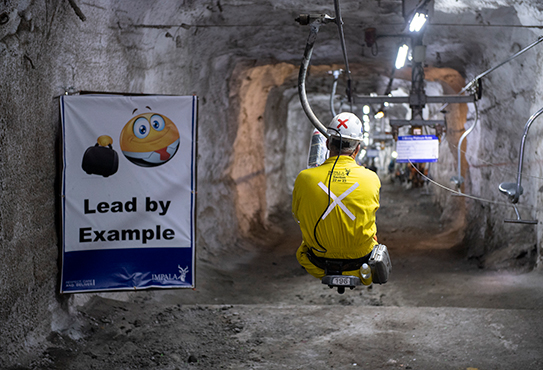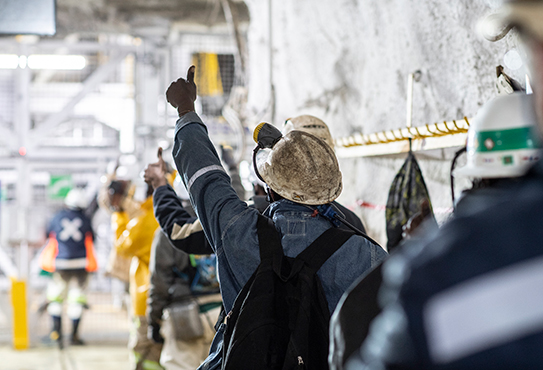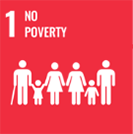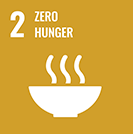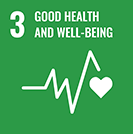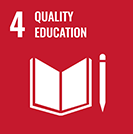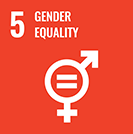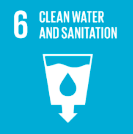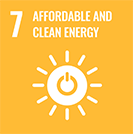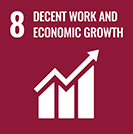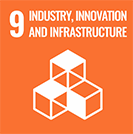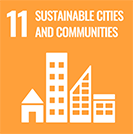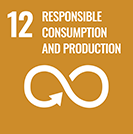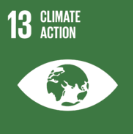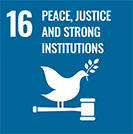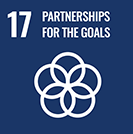No poverty
We contribute to poverty alleviation by:
- Providing direct and enabling downstream, indirect employment opportunities
- Preferential procurement, which focuses on supporting and sourcing goods and services from mine community businesses
- Providing infrastructure in host communities
- Paying taxes and royalties to the state
- Offering skills training, school support, entrepreneurship initiatives and social welfare programmes that improve economic outcomes, employment prospects and general health.
Zero hunger
We contribute to zero hunger by:
- Providing employment opportunities and ensuring employees earn a fair wage, significantly above the minimum wage
- Supporting local communities to access water for irrigation, seeds for subsistence farming, and training in agriculture and animal husbandry
- Working with social partners and governments to deliver food programmes and disaster relief efforts
- Preserving land, water and grazing resources necessary for agriculture, ensuring long-term food security.
Good health and wellbeing
We play a crucial role in contributing to good health and wellbeing by:
- Providing medical services including established HIV and TB programmes, to our employees and communities
- Building clinics and hospitals in our communities
- Undertaking community wellness initiatives to improve community access to health and welfare services, potable water and food security programmes
- Providing gender-based violence, policing and emergency services support to our communities.
Quality education
We contribute to quality education by:
- Offering bursaries, learnerships, internships, mentorships and skills development programmes
- Training our employees and contractors
- Infrastructure development initiatives (building and renovating schools and allied facilities) to ensure students have access to safe and conducive learning environments
- Offering training workshops, resources and incentives for teachers to improve their skills and stay motivated.
Gender equality
We promote gender equality by:
- Gender mainstreaming, diversity, management development and succession planning
- Participating in industry initiatives such as women-in-mining forums
- Setting targets for female representation in the Group
- Promoting gender safety with zero tolerance for harassment, bullying and victimisation
- Offering a fair pay policy to promote equality.
Clean water and sanitation
We have implemented various measures to ensure access to clean water and proper sanitation for employees and local communities by:
- Implementing water management systems to minimise freshwater withdrawals
- Investing in technologies and infrastructure to recycle and reuse water, reducing our overall water footprint
- Assisting community access to water
- Promoting safe hygiene and sanitation practices.
Clean and affordable energy
We promote clean and affordable energy solutions in our operations by:
- Procuring and investing in solar PV and other renewable energy sources to reduce reliance on fossil fuel-based energy sources and lower our greenhouse gas (GHG) emissions
- Implementing energy efficiency programmes to reduce GHG emissions
- Partnering with local organisations to implement sustainable energy projects, where appropriate
- Participating in industry forums to improve energy utilisation and advocate for clean energy policies.
Decent work and economic growth
We promote decent work and economic growth by:
- Creating employment opportunities
- Providing a fair wage, substantially above the minimum wage of our operating jurisdiction
- Paying taxes and royalties to the state
- Promoting enterprise and supplier development (ESD)
- Promoting skills development
- Providing our employees with opportunities to build wealth through our home ownership and employee share ownership schemes.
Industry, innovation and infrastructure
We enhance industry, innovation and infrastructure by:
- Continuously investing in research and development to improve mining techniques, increase efficiencies, and reduce the environmental impact of operations
- Partnering with industry peers, government and academic institutions to develop technologies that use our metals to create a better future
- Implementing sustainable practices to minimise our environmental footprint, such as water and energy conservation, reclamation of mined areas, biodiversity programmes and responsible waste management.
Sustainable cities
We promote the goal of sustainable cities through:
- Environmental protection initiatives that reduce our environmental impacts, such as adopting renewable energy sources, energy and water efficiency programmes, circular economy initiatives and biodiversity programmes
- Active community engagement that promotes social and economic wellbeing
- Providing integrated housing for our employees and communities, which incorporates energy-saving and environmentally friendly solutions.
Responsible consumption and production
We promote sustainable consumption and production through:
- Responsible management and efficient use of natural resources
- Reducing our environmental footprint with responsible and sustainable consumption
- Investing in technology and innovation
- Protecting biodiversity
- Adopting circular economy thinking
- Reducing waste generation through prevention, reduction, recycling and reuse.
Climate action
We take specific measures to reduce our impact on the environment and combat climate change by:
- Implementing sustainable mining practices
- Reducing GHG emissions
- Adopting renewable energy sources
- Minimising water and waste pollution
- Knowledge-sharing on climate risks and mitigations with stakeholders
- Investing in the restoration and conservation of ecosystems.
Peace, justice and strong institutions
We promote peace, justice and strong institutions by:
- Upholding and sharing our code of ethics with stakeholders
- Increasing transparency of our business practices
- Respecting human rights and the laws in our operating jurisdictions
- Supporting and collaborating with industry partners, local governments, civil society organisations and other stakeholders to improve regulation of the mining industry.
Partnerships for the goals
We promote partnerships for the goals by:
- Partnering with local and international organisations to advocate for policy and to enhance governance, transparency and accountability in the mining sector
- Investing in capacity-building initiatives to strengthen local institutions and promote responsible mining practices.
